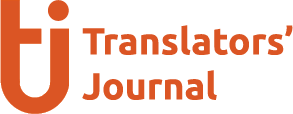What is Legal Translation?

Legal translation is a specialized field that involves translating legal documents from one language to another. It requires a high level of accuracy, precision, and cultural sensitivity. A poorly translated legal document can have serious consequences, including legal disputes and financial losses.
Legal translation is like translating a really important document, like a contract or a law. It’s not just about changing words from one language to another. The translator needs to be very careful and make sure the meaning is exactly the same in the new language.
If a legal document is translated wrong, it could cause big problems, like lawsuits. So, it’s really important to get it right.
Common Examples of Legal Translations
Here are some of the most common types of legal documents that often require translation:
- Personal Documents Translation:
- Birth certificates
- Marriage certificates
- Death certificates
- Divorce decrees
- Adoption papers
- Passports
- Visas
- Driver’s licenses
- Academic diplomas and transcripts
- Business Documents Translation:
- Contracts (commercial, employment, lease, etc.)
- Financial statements (annual reports, balance sheets, income statements)
- Legal agreements (partnership agreements, shareholder agreements)
- Intellectual property documents (patents, trademarks, copyrights)
- Corporate documents (articles of incorporation, bylaws, board resolutions)
- Due diligence reports
- Merger and acquisition documents
- Regulatory filings
- Legal Proceedings:
- Court orders
- Summons and complaints
- Pleadings
- Affidavits
- Depositions
- Expert reports
- Legal briefs
- Judgments
- Government Documents:
- Tax returns
- Immigration documents
- Customs declarations
- Government regulations
- Legal codes
- Treaties and international agreements
The Challenges of Legal Translation
Legal translation is similar to translating a food recipe. If you miss one word or ingredient, the dish could turn out wrong. But with legal translations, the consequences are much more serious. Legal translation is challenging because:
- Legal Language is Tough: Lawyers use special words and phrases that can be hard to understand for laymen.
- Different Countries, Different Rules: Legal systems and practices vary significantly across different jurisdictions. Laws and how they’re written change from country to country.
- It Has to Be Perfect: Legal translations must be exactly right. Even a small mistake can cause big problems.
Why Accurate Legal Translations Matter
- Making Deals Stick: When companies do business in different countries, they need to make sure their contracts are clear and correct. If a contract is translated wrong, it could lead to legal problems.
- Fair Trials: If someone is in court in a foreign country, the legal documents need to be translated correctly. This is important for a fair trial.
- Following the Rules: When companies do business in different countries, they need to follow the rules of that country. Legal translations help ensure they do this.
- International Business: Accurate translations help businesses work together smoothly across borders.
What Tools do Legal Translators Use?
Like any freelance translator, legal translators too use a bunch of helpful tools to do their job well. These tools help them understand difficult words, remember good translations, keep their work consistent, and sometimes even get a first draft quickly. Here are some of the main tools they use:
- Legal Dictionaries and Glossaries: These specialized dictionaries help translators understand the meaning of tricky legal words and phrases.
- Translation Memory Tools: These tools remember the best translations for common phrases, making the translator’s job faster and more accurate.
- Terminology Management Tools: These tools help make sure the translator uses the same words and phrases throughout the document.
- Machine Translation Tools: While machine translation can be a helpful tool, it should always be used with caution and carefully reviewed by a human translator.
What Makes a Good Legal Translator?
- Language Skills: They need to have a strong command of both source and target languages.
- Legal Knowledge: They need to understand laws and legal terms.
- Cultural Awareness: They need to know how laws and customs differ between countries.
- Attention to Detail: Precision and accuracy are paramount in legal translation.
- Confidentiality: Legal translators must maintain strict confidentiality.
- Continuous Learning: Laws and languages change, so translators must keep learning.
- Knowing the Subject: They need to understand the specific area of law they’re translating.
Tips for Legal Translators
Legal translation is a specialized field that requires a deep understanding of both languages and the legal systems involved.
Here are some tips to help you excel in this field:
- Master Legal Terminology
- Build a Strong Vocabulary: Continuously expand your legal vocabulary in both source and target languages. You may find writing down new words and their meanings helpful to build a strong vocabulary.
- Stay Updated: Keep up with legal developments and changes in terminology.
- Use Legal Dictionaries and Glossaries: Refer to specialized dictionaries and glossaries to ensure accurate translations.
- Understand Legal Concepts
- Learn About Legal Systems: Familiarize yourself with the legal systems of both source and target languages.
- Pay Attention to the Details: Even small differences in legal words can have big differences in meanings. Understand the subtle differences in legal concepts and how they are expressed in different languages.
- Ask the Experts: If you’re unsure about something, ask a lawyer or legal expert.
- Double-Check Your Work
- Be Accurate: Make sure your translations are correct.
- Proofread Carefully: Thoroughly proofread your work to identify and correct errors.
- Cross-Check with Original Text: Regularly compare your translation to the source text to verify your translation matches the original text.
- Keep It Consistent
- Create a Style Guide: Make a rulebook for your translations. This includes things like how to spell words, how to use punctuation, and how to translate specific terms.
- Use Translation Memory Tools: These tools can remember how you’ve translated certain phrases before, making your work faster and more accurate. Using Translation Memory is an efficient way to keep your translation consistent.
- Understand Cultural Differences
- Consider Cultural Nuances: Be aware of how cultural differences can affect the way legal documents are written. When translating legal documents, it’s important to understand the culture of the people who will be reading them. Different cultures have different ways of expressing ideas and different legal systems.
- Tailor Your Translation: Make sure your translation is clear and easy to understand for the people who will be reading it.
- Follow Professionalism and Ethics
- Maintain Confidentiality: Protect the confidentiality of your clients’ information. Don’t share your client’s private information with anyone.
- Adhere to Ethical Guidelines: Follow professional codes of conduct and ethical standards.
- Manage Your Time: Make sure you finish your work on time.
Certification for Legal Translators
Certification is a significant step for legal translators to enhance their credibility and open up more opportunities. A certification, such as the one offered by the American Translators Association (ATA), validates a translator’s skills, knowledge, and commitment to professional standards.
Why Certification Matters
- Enhanced Credibility
If you’re a certified translator, clients will trust you more. It’s like a badge that says, “This person is really good at translating!” Clients will know that you’ve met high standards and that your work is accurate.
- More Opportunities for Certified Translators
If you’re a certified translator, you’ll have more job opportunities. Companies will want to hire you because they know you’re good at what you do. You might even get special job offers and be part of exclusive groups for translators.
- Ethical Standards
Certified translators promise to do the right thing. They are expected to adhere to a strict code of ethics, ensuring professionalism and integrity.
How to Obtain Certification:
The process of obtaining certification varies depending on the specific organization. However, generally, it involves:
- Meet the Requirements:
- Education: Many certification programs require specific education, such as a degree in translation or a related field.
- Experience: You might need a certain number of years of experience in legal translation.
- Language Proficiency: You’ll need to demonstrate advanced proficiency in both your source and target languages.
- Pass the Certification Exam:
- Language Skills: The exam will test your language skills, including grammar, vocabulary, and syntax.
- Translation Accuracy: You’ll be asked to translate legal texts, demonstrating your ability to accurately convey meaning and legal nuances.
- Subject Matter Knowledge: You may be tested on your understanding of legal concepts, terminology, and cultural differences.
Ethical Considerations
Legal translators, like any other professionals, are bound by a code of ethics. This code ensures that they maintain the highest standards of professionalism, accuracy, and confidentiality. Here are some key ethical considerations for legal translators:
- Confidentiality
- Client Information: Legal translators often handle sensitive and confidential information. It is crucial to maintain strict confidentiality and avoid disclosing any information without explicit client consent.
- Privileged Communication: In some jurisdictions, communications between lawyers and clients are privileged. Translators working with such documents must be aware of these privileges and maintain confidentiality accordingly.
- Conflict of Interest
- Dual Representation: Avoid situations where you may have a conflict of interest, such as representing two opposing parties in a legal dispute.
- Personal Bias: Maintain objectivity and avoid letting personal beliefs or biases influence your translations.
- Professional Standards
- Accuracy and Precision: Ensure that your translations are accurate and precise, avoiding any errors or misinterpretations.
- Cultural Sensitivity: Be mindful of cultural nuances and avoid making culturally insensitive translations.
- Timeliness: Deliver translations within agreed-upon deadlines.
- Continuous Learning: Stay updated on legal terminology, language trends, and technological advancements.
Adhering to Ethical Guidelines
The American Translators Association (ATA) and other professional organizations have established ethical guidelines for translators. Adhering to these guidelines ensures that legal translators maintain the highest standards of professionalism. Key ethical principles include:
- Integrity: Honest and truthful conduct.
- Competence: Maintaining and improving professional skills.
- Responsibility: Fulfilling professional obligations.
- Fairness: Treating all clients and colleagues fairly.
- Respect: Respecting the rights and dignity of others.
Conclusion
Legal translation is a complex and highly specialized field for translators that requires a deep understanding of both languages and the legal systems involved. It’s more than just switching words from one language to another. A good legal translator needs to be accurate, precise, and culturally sensitive.
To be a successful legal translator, you need to:
- Master the Language: Learn legal terms and understand how laws work in different countries.
- Pay Attention to Detail: Be accurate and careful in your translations.
- Be Ethical: Keep client information confidential and follow professional guidelines.
- Stay Updated: Keep learning and improving your skills.

